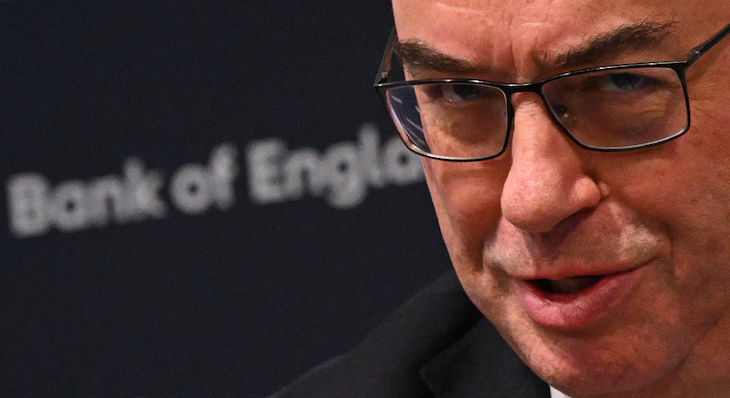Interest rate cuts are beginning to look like a mirage: the closer we seem to get to them the more they seem to recede into the distance. Bank of England governor Andrew Bailey may have hinted this week that UK rates could soon be cut regardless of what happens in the United States, where strong jobs data is putting off the Federal Reserve from cutting rates, but this morning’s inflation data will not encourage an early cut.
Already a subscriber? Log in
Subscribe for just $2 a week
Try a month of The Spectator Australia absolutely free and without commitment. Not only that but – if you choose to continue – you’ll pay just $2 a week for your first year.
- Unlimited access to spectator.com.au and app
- The weekly edition on the Spectator Australia app
- Spectator podcasts and newsletters
- Full access to spectator.co.uk
Or





















Comments
Don't miss out
Join the conversation with other Spectator Australia readers. Subscribe to leave a comment.
SUBSCRIBEAlready a subscriber? Log in